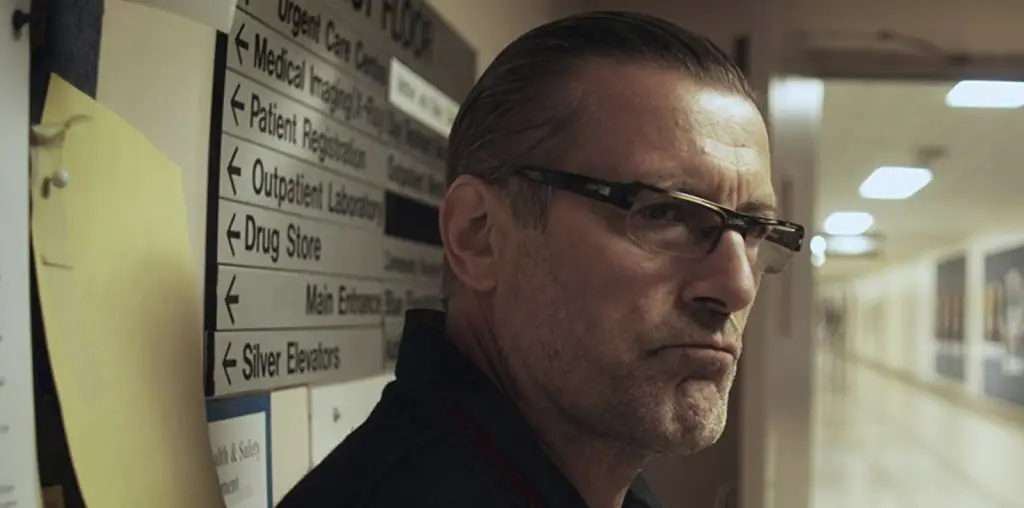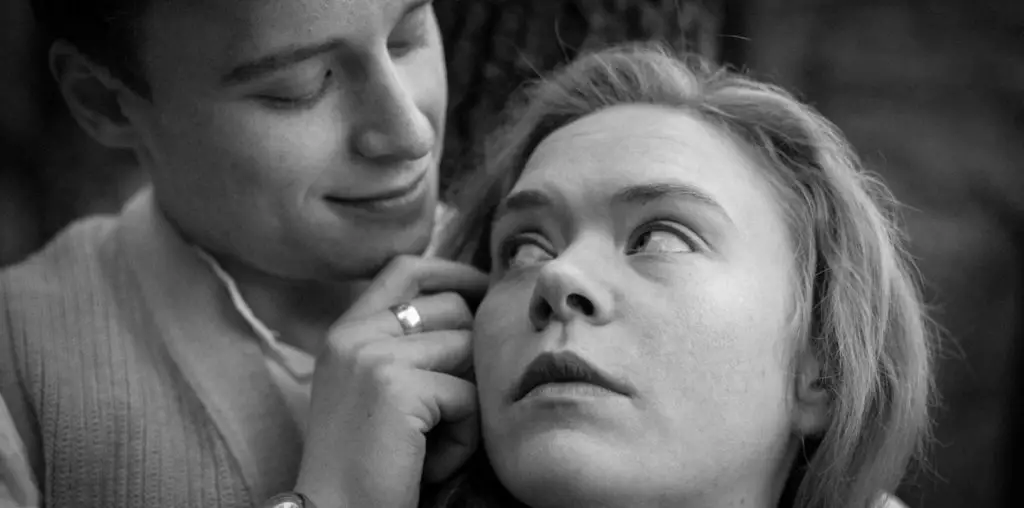
Ready for a change in his life, New York City cab driver Eddie “Punch” Rizzo (screenwriter Tony Spiridakis) had his AMC Matador all packed and was ready to leave town…on the night of September 10, 2001. So while his plans weren’t utterly destroyed, like the lives and dreams of so many others, by the horrible events that occurred the next morning, they were put on indefinite hold. For after the Twin Towers’ horrific collapse covered the neighborhood and his Matador in a blanket of dust, the neighbors believe they’ve discovered a miracle: They swear that, at sunrise, they can see an image of the Madonna and her Child in the dust covering Eddie’s Matador. His getaway car thus turned into an impromptu neighborhood shrine, Eddie doesn’t have the heart to move his vehicle and make good his escape.
Lily (Janeane Garafalo) is trapped as well. Stricken with a severe case of agoraphobia ever since seeing one of the planes hit the towers firsthand, she refuses to come out of her apartment. This despite the coaxings of her plain Jane neighbor Samantha (Jennifer Carpenter) and the heartfelt entreaties of Karl (Giancarlo Esposito), an effusive street poet who’s become smitten with Lily from the sidewalk outside her window and is at a loss as to how to reach her.
Judy (Nikki Hansen) feels a different sense of loss. One which Eddie gradually helps her to cope with after he awakens from a severe headache to discover the attractive young woman in his apartment. She’d been dropped off there by the sleazy ladies man Billy Boy (Dov Davidoft), who met her at the bar where Samantha works — and where Samantha hooks up with the sexy singer Gina Mascara (Pauley Perrette). Lily observes this not entirely surprising lesbian encounter through her peephole from the sanctity of her apartment.
These are the tangled and intertwined lives of one Manhattan neighborhood, struggling to recover some semblance of normalcy in the months following the worst day in our nation’s history, as told in director Jim Hershleder’s ensemble drama “Ash Tuesday.” It’s a film that benefits from the same positives — and suffers from the same negatives — as other similar such ensemble pieces. The viewer finds himself being inexorably drawn into these characters’ stories, as if Eddie was regaling us with them as we rode in his cab. Yet, there’s no overarching narrative to the film as a whole. Indeed, what eventually, even surprisingly emerges as the film’s most solid and tangible storyline, that of two brothers struggling to reconcile with their pasts and with each other, sneaks by almost unnoticed.
“Ash Tuesday” could take place anywhere and at any time. Even the miraculous Matador, the source of the film’s titular and strongest 9/11 link, gets dealt with almost as a perfunctory afterthought. That’s not to say, however, that the film exploits the tragedy in any way. Just that those events and their aftermath seem a little forced as a rationale for this film’s existence.
Then again, since we’re obviously still a nation somewhat in shock even over two years after the fact, our national psyche still struggling to accept the magnitude of the events that occurred on that September morning, maybe this film and the multitude of other similarly themed artistic endeavors are just what we need. We’re all still looking for Madonnas in the nation’s dust-covered Matadors. Seen in that light, then, while “Ash Tuesday” isn’t a miraculous tonic in and of itself, it might just serve as another useful session on our nationwide counseling couch.


